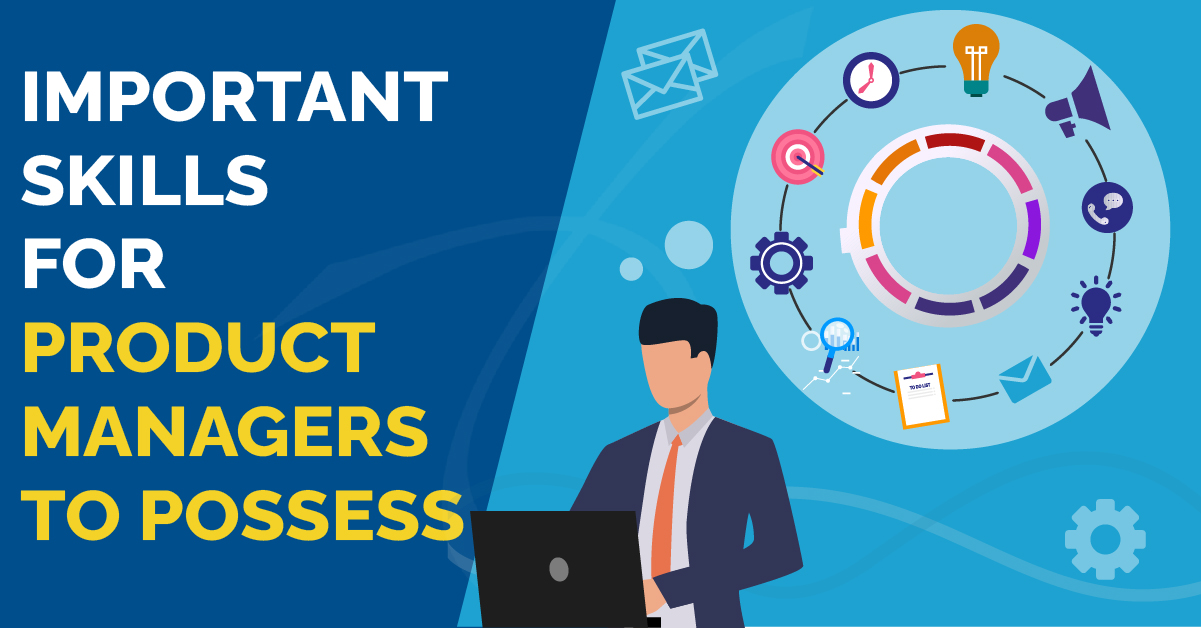
A product manager needs to know his product inside-out, but there is more to the role than that. From ideation to development, launch, and promotion, a product manager is responsible for his product at every stage. He works together with all the departments involved in a product’s journey to bring it to life. He makes sure that the product not only meets the needs of its users but also reflects the goals of his organization.
The role of a product manager differs from company to company. But, irrespective of what his responsibilities are, there are a few important skills that every product manager must possess. A combination of hard and soft skills is required for product managers to succeed. We have listed some of those skills here:
Market Research
The quality of research determines the quality of the end product. An important trait of a good product manager is the ability to understand customer preferences and market trends well. He should coordinate with his team of data analysts to gather data on customer buying behaviors and competitor performance. This information helps him to design a product that best fits user requirements and to stand out from competitors.
Analytical Skills
Analytical skills follow close on the heels of market research. Once the research is done, product managers need to be able to analyze their gathered data in order to make the right decisions for their products with respect to pricing, marketing, etc. Product managers are required to have good analytical skills and to know how to use their research findings to ensure the growth and success of their product.
Communication Skills
Communication is an important skill for product managers to possess irrespective of their designation. They should be able to communicate their ideas in spoken and written form to their salespeople and product design and development teams effectively to ensure the right outcome. One wrong communication, or the lack of any communication, can be the deal-breaker in a business relationship.
Leadership
Product managers need to interact with and get work done from multiple teams on a daily basis. They need to make sure that every team member is contributing well and is on the same page in order to realize their product vision. To be able to do that well, they must possess excellent leadership skills.
Industry Knowledge
A product manager needs to keep himself updated with the latest information and trends in his industry. By studying their industry, product managers can gain an understanding of similar products in the market, identify the loopholes in them, and design a product that fixes those loopholes and improves customer experience.
UI And UX Knowledge
This is the most important skill for product managers to possess. Their team will include UI and UX experts, but if product managers have even basic UI and UX knowledge it will help them to understand the ideas of the UI/UX team well and share their own inputs with the team. This skill also increases their chances of getting hired as recruiters prioritize product managers with UI and UX knowledge.
Problem-Solving
Problem-solving forms the foundation of product management. It is a continuous process that starts and ends with customers and the issues they are facing in their daily lives. Customers prefer to buy products that solve their problems. An important quality of a good product manager is the ability to empathize with his customers’ pain points and provide solutions to them in his product.
Time Management
Product managers always have to juggle managing multiple products. An easy way to do this is by delegating tasks. As the leader of his team, a product manager may feel the urge to micromanage every task. However, delegating tasks to team members can instill a sense of responsibility in them. Effective time management can help product managers to launch their products on time.
A/B Testing
A/B testing involves testing two different versions of a product’s features on two groups of users respectively. These tests last between one to two weeks, after which product managers analyze their findings to decide which version of the product to launch. From planning and carrying out these tests to monitoring their results, A/B testing is the responsibility of product managers.
Prototyping
A prototype is a sample of the final product. Prototyping is an important stage in the process of product development where a product is tested on real users in real-life environments. This process can help product managers to catch any loopholes, usability issues, or technical glitches in the product early. Prototyping prevents businesses from losing their customers and damaging their reputation and saves them the money that they have to invest in redesigning the product.
